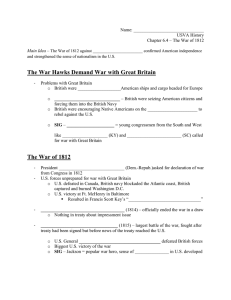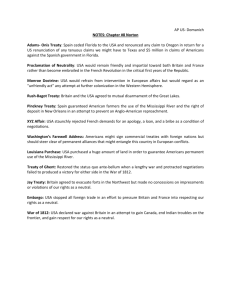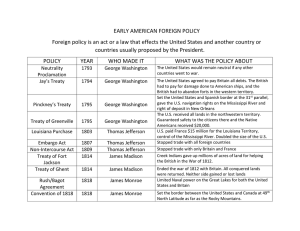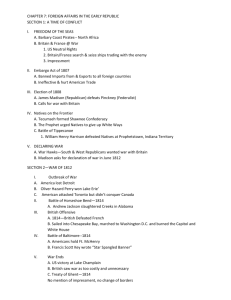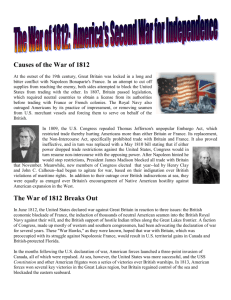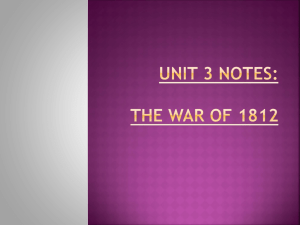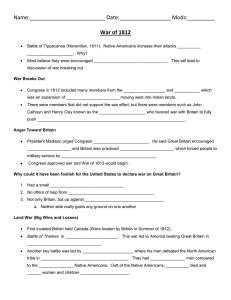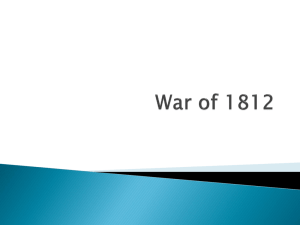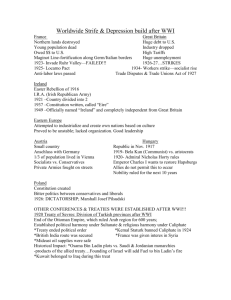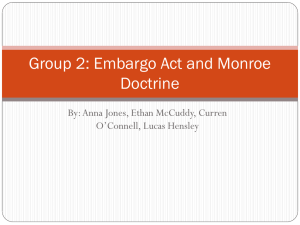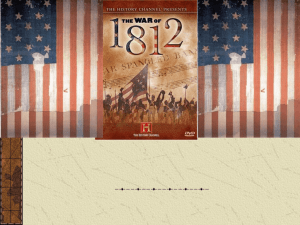CH 23 Notes
advertisement
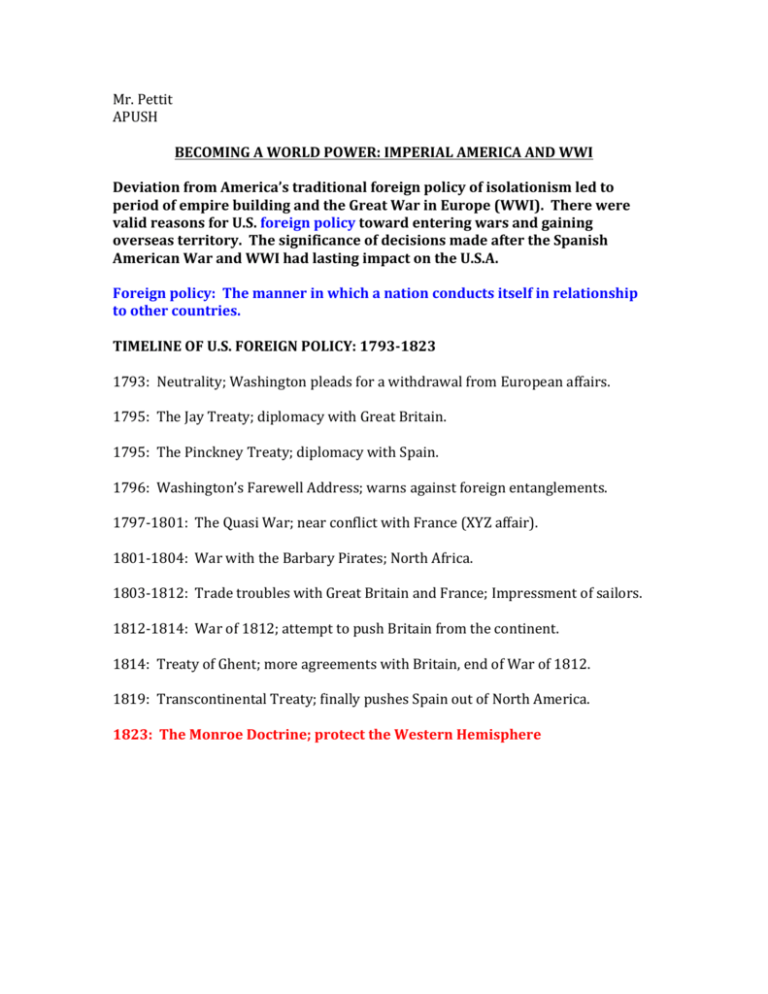
Mr. Pettit APUSH BECOMING A WORLD POWER: IMPERIAL AMERICA AND WWI Deviation from America’s traditional foreign policy of isolationism led to period of empire building and the Great War in Europe (WWI). There were valid reasons for U.S. foreign policy toward entering wars and gaining overseas territory. The significance of decisions made after the Spanish American War and WWI had lasting impact on the U.S.A. Foreign policy: The manner in which a nation conducts itself in relationship to other countries. TIMELINE OF U.S. FOREIGN POLICY: 1793-­‐1823 1793: Neutrality; Washington pleads for a withdrawal from European affairs. 1795: The Jay Treaty; diplomacy with Great Britain. 1795: The Pinckney Treaty; diplomacy with Spain. 1796: Washington’s Farewell Address; warns against foreign entanglements. 1797-­‐1801: The Quasi War; near conflict with France (XYZ affair). 1801-­‐1804: War with the Barbary Pirates; North Africa. 1803-­‐1812: Trade troubles with Great Britain and France; Impressment of sailors. 1812-­‐1814: War of 1812; attempt to push Britain from the continent. 1814: Treaty of Ghent; more agreements with Britain, end of War of 1812. 1819: Transcontinental Treaty; finally pushes Spain out of North America. 1823: The Monroe Doctrine; protect the Western Hemisphere U.S. FOREIGN POLICY IN LATIN AMERICA Spanish-­‐American War, 1898 Establishment of protectorates in Cuba and Puerto Rico, 1898 Roosevelt Corollary to the Monroe Doctrine, 1904 Control and creation of the Panama Canal, 1903-­‐1914 Taft’s Dollar Diplomacy, 1909-­‐1913 Intervention In Mexico, 1915 U.S. FOREIGN POLICY IN THE PACIFIC The annexation of Hawaii, 1893-­‐1898 The Open Door Policy in China, 1899 Annexation of the Philippines, 1899 Treaty of Portsmouth, 1905
